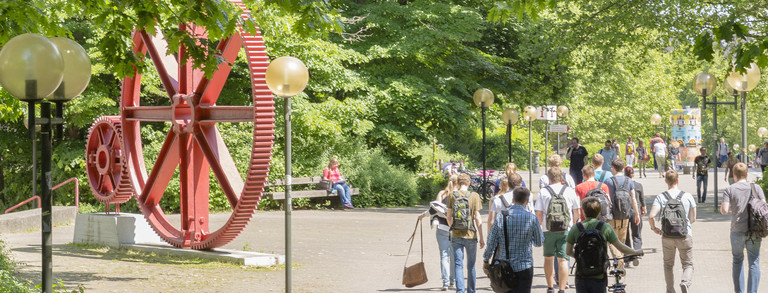The Big Sort - Functional segregation processes in re-urbanized city regions
Goal
During the past 15 years Germany's largest cities have experienced an unexpected population boom. The consequences of this period of urban growth were not only positive for the cities in question and became the subject of critical urban science and policy debates. Rising housing costs, socio-economic displacement and new forms of suburbanization of poverty are considered markers of a dynamic socio-spatial restructuring of urban regions in the western world. While the phenomenon of gentrification, i.e. the displacement of low-income groups from inner-city neighborhoods as a result of growth and upgrading processes, has been well researched, the effects of urban growth on non-residential functions such as industry have only rarely been the subject of scientific studies. The project "The Big Sort" aims to fill this research gap. The aim is to investigate whether and to what extent industrial use has been crowded out in large cities in North Rhine-Westphalia and which causal factors can be identified in this process. It is assumed that industrial displacement is caused by a combination of market forces (e.g. rising rents and land prices) and urban planning interventions aimed at strengthening residential uses and/or higher-value economic uses in cities (e.g. reallocation of land).
Methods
The explorative approach of the research project relies on a mix of quantitative and qualitative methods. The empirical analyzes place a special focus on craft businesses, which, as sector of comparatively low productivity, are assumed to be particularly vulnerable to displacement from the core cities. The first step is to find quantitative evidence for the displacement processes described above in the largest cities of NRW. The empirical analyzes are based on data from the provider North Data, which can be used to track relocations and company closures in the crafts sector. This data is supplemented by data on real estate and land price developments as well as changes in land use plans, which enable causal analyzes on commercial displacement. The quantitative analyzes are then supplemented by guided expert interviews with representatives of chambers of crafts, economic development and planning offices. The experts are asked whether they perceive displacement processes of commercial enterprises in the respective urban area, how they assess them if they occur, which main factors they blame for this and which spatial and technical planning strategies are considered suitable to mitigate industrial displacement and functional segregation.
Funding organisation: German Research Foundation (DFG)
Funding ID: 504074852
Duration: January 2023 to June 2025
Contact persons
Prof. Dr. Stefan Siedentop, stefan.siedentop@tu-dortmund.de
Dr. Bastian Heider, bastian.heider@tu-dortmund.de

